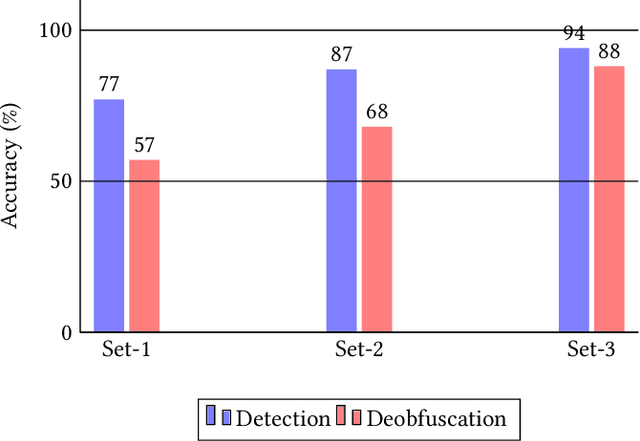Defeating Opaque Predicates Statically through Machine Learning and Binary Analysis
Paper and Code
Sep 04, 2019



We present a new approach that bridges binary analysis techniques with machine learning classification for the purpose of providing a static and generic evaluation technique for opaque predicates, regardless of their constructions. We use this technique as a static automated deobfuscation tool to remove the opaque predicates introduced by obfuscation mechanisms. According to our experimental results, our models have up to 98% accuracy at detecting and deob-fuscating state-of-the-art opaque predicates patterns. By contrast, the leading edge deobfuscation methods based on symbolic execution show less accuracy mostly due to the SMT solvers constraints and the lack of scalability of dynamic symbolic analyses. Our approach underlines the efficiency of hybrid symbolic analysis and machine learning techniques for a static and generic deobfuscation methodology.
 Add to Chrome
Add to Chrome Add to Firefox
Add to Firefox Add to Edge
Add to Edge